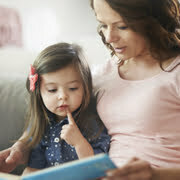Emotional Regulation Builds Resilience
Emerging literature in the resilience research has a particular focus on encouraging children to adopt strategies that facilitate emotional regulation.
Each child’s ability to monitor and regulate their emotions is unique and is indicative of their personal intrinsic ability to adopt self-regulatory mechanisms and apply them to create solutions. So when children are feeling emotions such as sadness, frustration and anger, it can be useful to observe what techniques children use to firstly manage their emotions and also what strategies they apply to solve the problem. Now, children are not immediate experts with self-regulation techniques and obtaining the skills for self-regulation takes time and practice. So it is important that mentors are available to guide the children with positive, peer mediated assistance.
According to Vohs & Baumeister, self-regulation is characterised by the efforts of humans to regulate or alter their own psychological states or behaviour and voluntarily inhibit, activate and change attention or behaviour.
There are many ways that we can teach children to firstly practice, and then apply emotional regulation. To discover what they are, simply click here to read the full article by The School For Living founder, Sarah Tillott.



